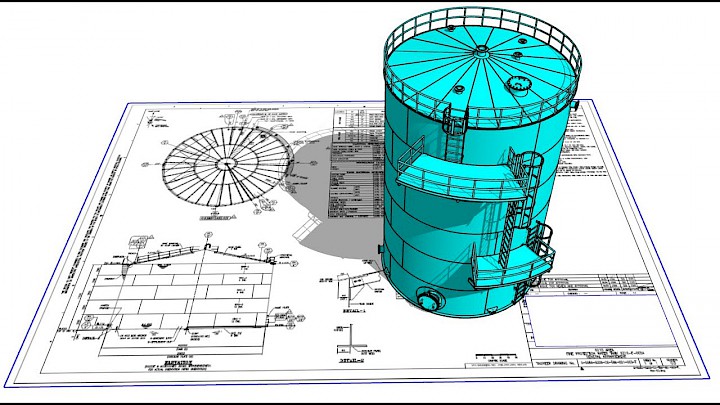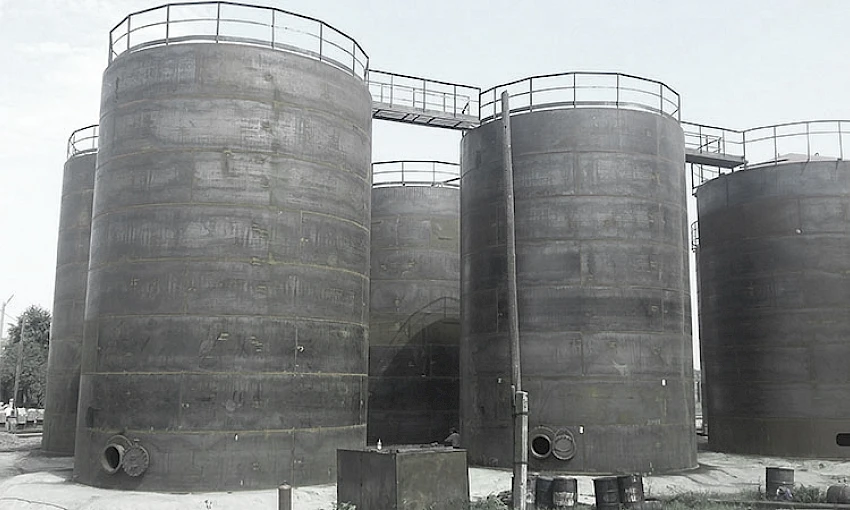The Benefits of Welding Examination for Boosted Security and Performance
Welding evaluations are important for making certain that frameworks fulfill rigid market standards. They play a crucial role in recognizing issues early, therefore boosting security and decreasing the risk of catastrophic failings. Furthermore, these evaluations can bring about significant price financial savings by avoiding costly fixings and downtime. As organizations aim for better performance and reliability, the relevance of a durable evaluation procedure can not be overstated. What various other benefits might arise from a commitment to comprehensive welding examinations?
Ensuring Conformity With Sector Specifications
Guaranteeing conformity with industry requirements is vital for maintaining top quality and security in welding tasks. Abiding by well-known protocols not just protects employees but likewise boosts the toughness and efficiency of the final product. Welding examinations carried out at numerous phases of the process aid identify any kind of deviations from these requirements, making it possible for timely restorative activities. This proactive strategy reduces the danger of failings that could result from ineffective workmanship.
Moreover, conformity with sector requirements cultivates trust among stakeholders, including customers, governing bodies, and the labor force. It symbolizes a dedication to excellence and responsible methods, which can cause boosted organization possibilities and an affordable side out there - API 650 Welding Inspection. Regular assessments additionally assure that strategies and products utilized line up with the most up to date technological improvements and safety guidelines. Eventually, adherence to market requirements is not simply a regulative demand however a cornerstone of quality assurance in welding tasks
Enhancing Safety And Security Via Very Early Discovery of Issues
While the main goal of welding evaluations frequently centers on conformity, they play a crucial duty in improving safety and security by allowing the early discovery of issues. Determining issues such as insufficient combination, fractures, or porosity during inspections can greatly minimize the danger of devastating failings. Early detection allows for prompt interventions, guaranteeing that malfunctioning welds do not endanger structural integrity.
Furthermore, organized examinations cultivate a culture of safety within companies by highlighting the importance of top quality control. This positive approach not just protects employees but additionally safeguards the surrounding environment. Normal assessments can disclose patterns in issue incident, permitting modifications in welding strategies and training programs to deal with underlying concerns.
Consequently, welding assessments serve as a critical secure, bolstering general safety and security and performance by determining issues prior to they intensify into significant dangers. This commitment to high quality straight adds to the longevity and dependability of welded frameworks.
Lowering Prices by Preventing Failings
By executing complete welding inspections, organizations can successfully minimize prices related to failings and revamp. The aggressive recognition of issues throughout the welding procedure minimizes the risk of catastrophic failures that can lead to costly repairs or replacements. Early discovery permits for prompt interventions, which avoids the acceleration of minor issues right into significant issues that strain budgets and resources. In addition, by making certain that welds fulfill defined criteria, companies can stay clear of hold-ups in job timelines caused by the need for considerable rework or added assessments later while doing so. This not just conserves money but additionally improves operational performance. An online reputation for high quality workmanship can lead to raised client satisfaction and repeat business, more contributing to economic stability. Overall, purchasing welding evaluations is a critical method that cultivates price savings while guarding the integrity of bonded structures.
Improving Efficiency and Longevity of Structures


Welding evaluations play an essential role in improving the efficiency and long life of frameworks, as they confirm that welds are performed to the greatest criteria. By identifying flaws early in the welding procedure, assessments prevent weak points that might endanger structural stability. This proactive approach warranties that the materials used satisfy called for specifications, consequently maximizing their load-bearing ability and strength.
Furthermore, consistent monitoring of welding techniques adds to the overall high quality of construction tasks. The capacity for fatigue and failure over time is significantly minimized when welds are validated for compliance with industry standards. Frameworks that are developed with effectively inspected welds are likely to experience fewer maintenance concerns and boosted sturdiness.
Inevitably, strenuous welding assessments not just reinforce the instant effectiveness of a structure however likewise prolong its functional life-span, providing long-lasting worth to both end-users and home builders alike.
Fostering a Society of Quality and Integrity
A dedication to top quality and reliability in welding practices substantially contributes to the total success of building projects. When companies prioritize these worths, they promote a culture that urges thorough interest to information and adherence to market criteria. This society not just improves the skill degree of welders however likewise promotes liability and synergy among all stakeholders associated with the project.

Normal welding evaluations work as a keystone see post in this cultural shift, enhancing the importance of regular efficiency and precaution (API 650 Welding Inspection). By executing strenuous assessment protocols, companies can identify possible flaws early, mitigating dangers and staying clear of expensive rework. An emphasis on quality and integrity instills confidence among clients and companions, leading to more powerful partnerships and enhanced track records.
Partnerships Eventually, cultivating a culture of quality and reliability in welding practices not only boosts task end results but additionally guarantees long-term sustainability and success in our website the building market.
Often Asked Concerns
What Certifications Should a Welding Examiner Have?
A welding examiner ought to have appropriate certifications, such as AWS CWI or CSWIP. Furthermore, they need to have experience in metallurgy, welding processes, and inspection methods, together with strong logical skills and focus to information for efficient assessments.

How Frequently Should Welding Inspections Be Conducted?
Welding examinations must be carried out on a regular basis, ideally after each significant stage of the welding procedure. Additionally, regular evaluations ought to occur based upon project demands, service conditions, and governing requirements to assure ongoing top quality and safety.
What Equipment Are Utilized During Welding Inspections?
Welding assessments use numerous tools, including ultrasonic testers, magnetic particle testers, aesthetic evaluation devices, and radiographic tools. Each tool offers a details function, making certain weld top quality and architectural honesty through thorough evaluation and analysis.
Can Welding Inspections Be Done From Another Location?
Welding examinations can certainly be check this site out carried out remotely utilizing innovative innovations such as drones and specialized cams. These devices allow examiners to assess welding quality and stability from a distance, improving effectiveness and security in different environments.
What Are the Typical Kinds of Welding Flaws?
Usual kinds of welding problems consist of porosity, splits, insufficient combination, damaging, and slag incorporation. These issues can endanger the integrity and strength of welds, bring about possible failings in structural applications if not addressed appropriately.
Welding examinations are essential for guaranteeing that frameworks satisfy rigid market criteria. Welding assessments conducted at various stages of the procedure help identify any kind of discrepancies from these criteria, enabling timely corrective actions. Welding inspections play an essential function in boosting the efficiency and durability of structures, as they verify that welds are implemented to the highest standards. Welding evaluations must be conducted routinely, ideally after each significant phase of the welding process. API 650 Welding Inspection. Welding inspections use different devices, including ultrasonic testers, magnetic bit testers, aesthetic evaluation tools, and radiographic devices